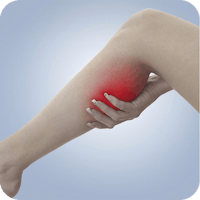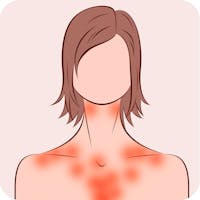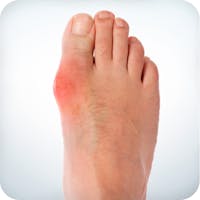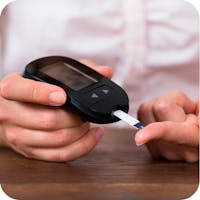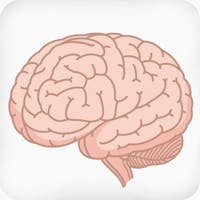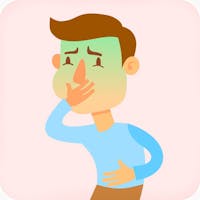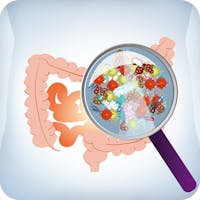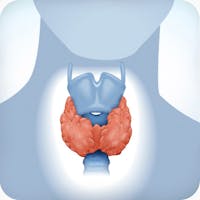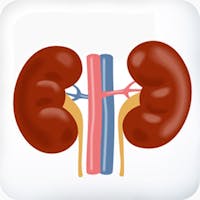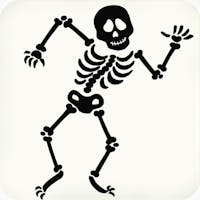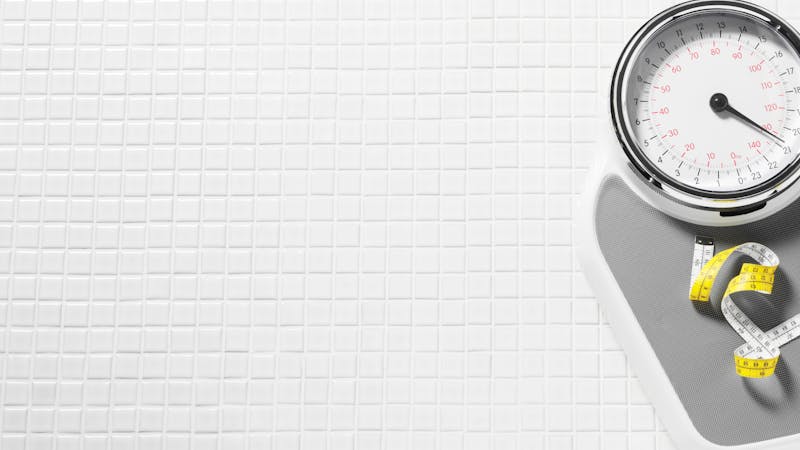Low carb and keto
side effects
& how to cure them
Are you struggling while starting out on a low carb or keto diet? Do you get headaches, leg cramps, constipation or any of the other more common side effects? Use the information on this page to avoid them – and feel great while losing weight.
Use one of the shortcuts below for a specific problem – or just continue reading for all of them.
Top 7 common problems when starting
Less common issues on low carb
Induction flu: headaches, lethargy, nausea, confusion, brain fog, irritability
The most common side effect on low carb is what’s known as “induction flu,” so called because it can mimic flu-like symptoms. It commonly occurs during the first week or two, often starting on days 2 through 4.
Symptoms include headaches, feeling tired, lack of motivation, nausea and lethargy. It’s also possible to experience confusion or “brain fog.”
The good news is that these symptoms often disappear spontaneously within a few days or at most a couple of weeks.
The even better news is that you can possibly avoid these symptoms altogether by consuming adequate water, salt, and calories on day 1.
The cure: water & salt
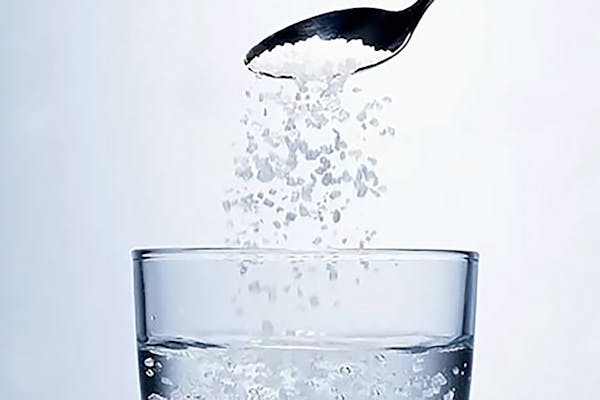



For example, increase your sodium intake by drinking a glass of water with half a teaspoon of salt. This may reduce or eliminate induction flu symptoms within 15-30 minutes. If so, this may be repeated once or twice daily, as needed, during the first week.
A better-tasting option is to use bouillon or broth (chicken, beef, vegetable, or bone broth).
In addition to sodium, make sure you’re getting enough of two other important electrolytes, magnesium and potassium.
Learn more about electrolyte supplementation on a keto diet
The bonus: more fat
When beginning a keto or low carb diet, make sure to eat enough protein and fat.
If necessary
If adding salt, water, and enough calories doesn’t completely eliminate the induction flu, do your best to stick with it a bit longer. Any remaining symptoms are likely to improve within days, as your body adapts to low carb and begins using fat as its main fuel.
If necessary, it’s of course possible to include more carbs in order to create a more gradual transition to low carb. While this may slow down the process and can result in slower weight loss, it may be a more viable long-term solution for many people.
Leg cramps
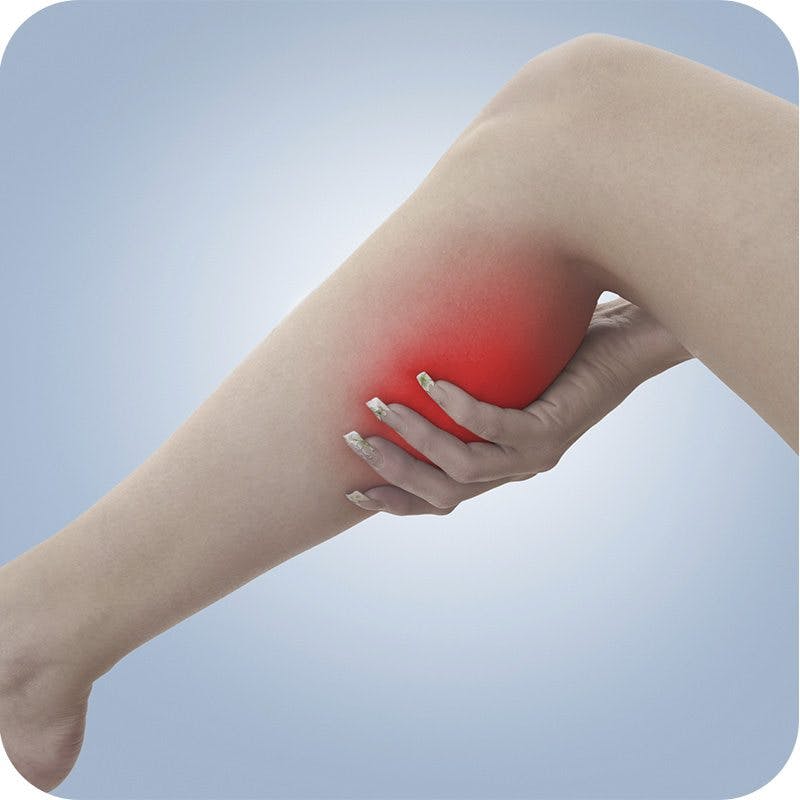



Here’s how to avoid leg cramps:
- Drink plenty of fluid and get enough salt. This may help prevent leg cramps.
- If needed, supplement with magnesium. Here’s a suggested dosage from the book The Art and Science of Low Carbohydrate Living by Drs. Jeff Volek and Stephen Phinney: Take 3 slow-release magnesium tablets like Slow-Magor Mag 64 a day for 20 days, then continue taking 1 tablet a day afterwards.
- If the steps above are not enough and the problem is bothersome, consider increasing your carb intake somewhat. This may eliminate the problem, although it may reduce the impact of the low carb diet.
For even more information and tips, check out our full guide:
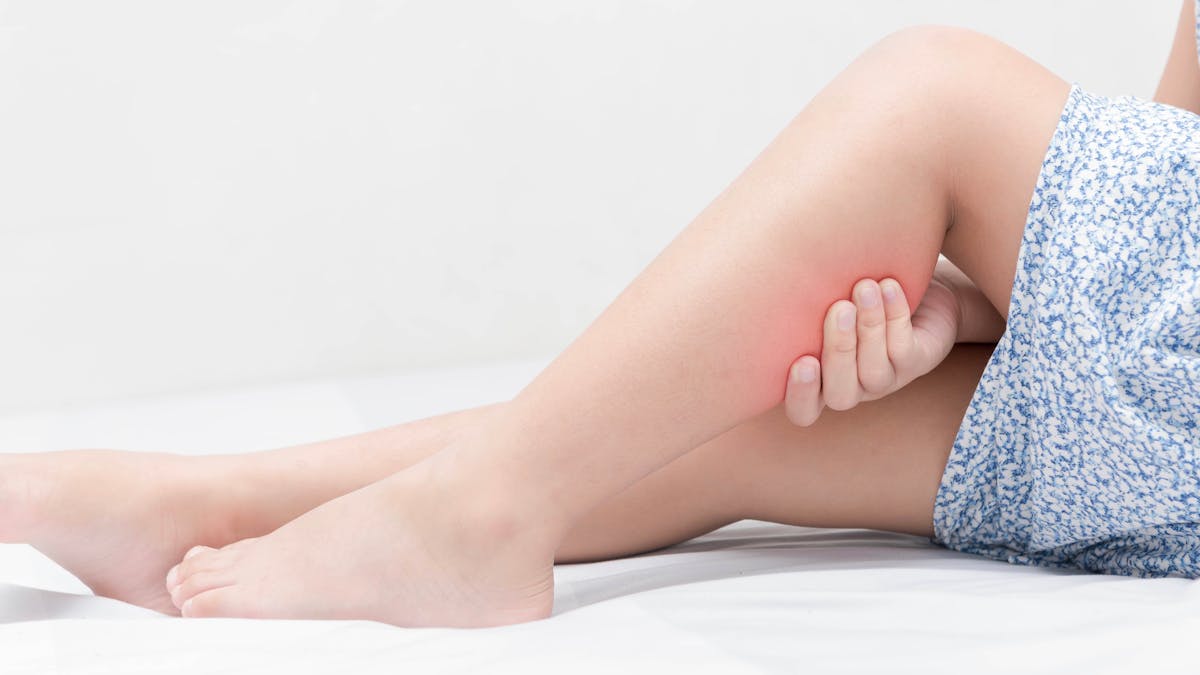

Six ways to kick nasty leg cramps to the curb
Guide Here are the six key things to know to kick your leg cramps to the curb, in our full leg cramps guide.
Constipation
Constipation is another possible side effect, especially when first starting a low carb diet, as your digestive system may need time to adapt.




- Drink plenty of fluid and get enough salt. One common cause of constipation on low carb may be dehydration.This results in the body absorbing more water from the colon, so the colon’s contents get drier and harder, leading to constipation. The solution? Drink plenty of water and perhaps add some extra salt.
- Eat plenty of vegetables or another source of fiber. Getting enough dietary fiber keeps the intestines moving, which may reduce the risk of constipation. Some may find their fiber intake decreases when eating low carb. However, eating plenty of non-starchy vegetables plus some nuts may help solve this problem. Another option for adding fiber to the diet that’s nearly carb-free is psyllium seed husks (mixed with plenty of water) or ground flaxseed.
- If the steps above are not enough, consider trying 2 to 4 tablespoons (30-60 ml) of Milk of Magnesia (magnesium hydroxide) to relieve constipation.
For more on constipation, check out the guide below.


What to do about constipation on a low carb or keto diet
Guide Are you constipated since going low carb or keto? This guide will explain all-things related to constipation and low carb.
Bad breath
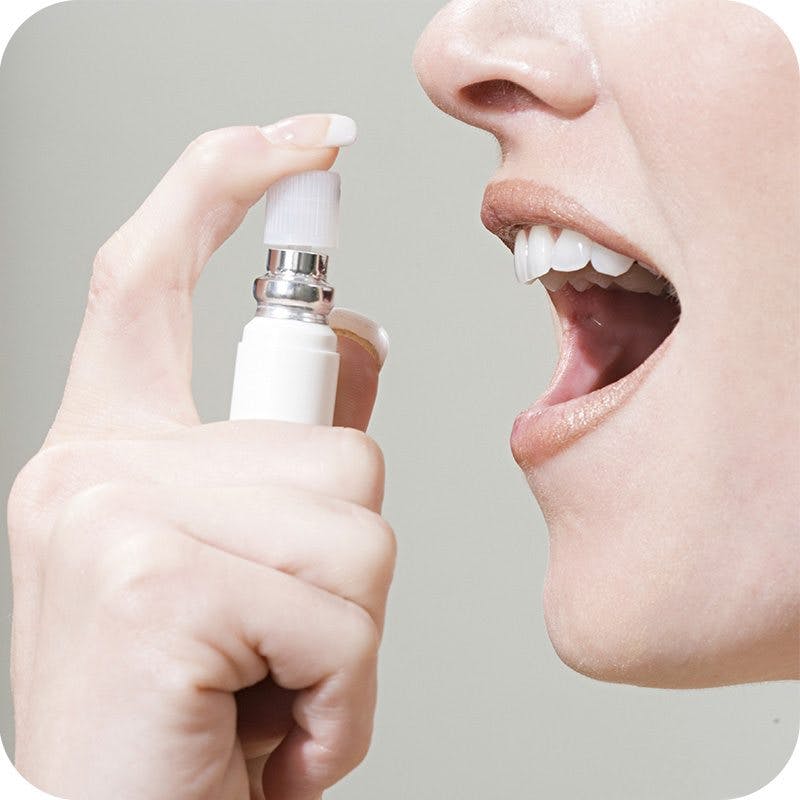



The odor is from acetone, one type of ketone body.
Higher levels of acetone can also lead to changes in body odor, especially when working out and sweating a lot.
Not everyone eating a ketogenic low carb diet experiences this ketone breath – and for most people who do, it’s a temporary thing that often goes away after a week or two.
For some people, it does not go away, though, and can remain a problem. Here are some possible solutions. The first two are more general, while the next three are more specifically targeted to the keto odor.
- Drink enough fluid and get enough salt. If your mouth feels dry – and it often can when starting a strict low carb diet and entering ketosis – this means you have less saliva to wash away bacteria. This can result in bad breath, so make sure to drink enough.
- Maintain good oral hygiene. Brushing your teeth twice a day won’t stop the fruity keto smell (which comes from your lungs), but at least it won’t be mixing with other odors.
- Use a breath freshener regularly. This can mask the keto smell.
- Wait another week or two and hope that it resolves. Clinical experience shows that this is usually a self-limiting side effect.
- Reduce the degree of ketosis. If the smell is a long-term problem and you want to get rid of it, one solution is to get out of ketosis or greatly reduce the degree of ketosis. This means including a few more carbs in your diet. Eating 50-70 grams per day may be enough to get out of ketosis.Of course, this will likely reduce the effectiveness of the low carb diet when it comes to weight loss, diabetes control, and other health benefits; but, some people will find the more liberal diet to be powerful enough.
Heart palpitations




As with many other side effects, one common cause may be dehydration and a lack of salt. However, if you have a history of heart disease or feel faint, please contact your physician right away.
The fix
The quick solution to this problem is to drink enough fluids and make sure to get enough salt.
If necessary
If adding salt and water does not completely eliminate heart palpitations, your symptoms might be related to stress hormones being released to maintain blood sugar levels (if you’re on diabetes medication, see the section below).
In the uncommon situation that the problem persists – and the palpitations are bothersome to you – try to slightly increase your carb intake. This will reduce the effect of the low carb diet somewhat, so it’s a trade-off.
It’s possible that supplementing with magnesium may decrease palpitations, though the evidence is very weak.
Important note if on medication for diabetes or high blood pressure
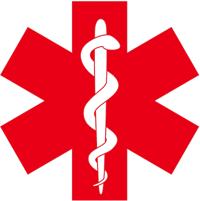



Diabetes
Decreasing carbohydrates decreases your need for medication to lower blood sugar. Taking the same dose of insulin or other diabetes medication as you did prior to adopting a low carb diet might result in low blood sugar. One of the main symptoms of this is heart palpitations.
You should monitor your blood sugar frequently when starting a low carb diet and work with your doctor to safely reduce your medication. If you are healthy or have diabetes that is treated either by diet alone or just with metformin, there is a very low risk of hypoglycemia.
If you need help finding a doctor knowledgeable about low carb diets, you can consult our clinician map.
Learn more about diabetes medications and low carb
High blood pressure
On a low carb diet, elevated blood pressure tends to improve or normalize for most people.
Reduced physical performance




- Lack of fluid and salt. This cause of most early problems when starting low carb can really hinder physical performance. Drinking a large glass of water with half a teaspoon of salt or a glass of broth 30–60 minutes before exercising might make a difference in performance.
- Adaptation to burning fat takes weeks. The second cause of reduced early performance isn’t as quickly fixed. It simply takes time for your body – including your muscles – to shift from burning sugar to burning primarily fat for energy.It can take weeks or even months. After the adaptation period, some may see significant benefits (see below).
Increasing physical performance on low carb
While transitioning to a low carb, high fat (LCHF) diet often reduces physical performance initially, it may provide several potential benefits long term.
The benefits of a low carb diet in sports may be more obvious in long-distance running and other endurance events. The body’s fat stores are significantly larger than its glycogen stores. This means that once fat-adapted, an athlete may be able to perform for long periods of time without needing much (if any) external energy. This frees the athlete from having to activate their gastrointestinal tract during activity and can minimize the risk of digestive issues.
Another benefit is the reduction of body fat that often occurs on low carb.
However, the evidence is mixed with respect to whether athletes benefit from going low carb. Two papers by Dr. Louise Burke showed a reduction in endurance race-walking performance after 3-4 weeks of keto eating.
You can read more in our evidence-based guide on carb cycling.
Watch Professor Stephen Phinney explain more about physical performance on low carb




Temporary hair loss
Temporary hair loss can occur for many different reasons, including any big dietary change. This is especially common when severely restricting calories (e.g., starvation diets or meal replacements).If so, it usually begins 3 to 6 months after starting the new diet, at which point you’ll notice more hairs falling out when brushing.
The good news is that even if you should be so unfortunate, this is usually a temporary phenomenon. And it’s likely that only a very small portion of your hair will fall out. Most find that the thinning will rarely be noticeable to others.
After a few months, all the hair follicles will start to grow new hair and get back to normal. Of course, if you have long hair this could take a year or even more.
Background
To understand exactly what is happening it’s necessary to know the basics of how hair grows.
Each hair on your head usually grows for about 3 to 5 years at a time. After that it stops growing for up to 2 months. Then a new hair strand starts growing in the same hair follicle, pushing the old hair out.
So although you’re losing hair every day, because the hair strands are unsynchronized, this is not so noticeable. You lose one hair and another starts growing, so you always have about the same number of hair strands on your scalp.
Stress and synchronized hair loss
If your body experiences significant stress, more hair strands than usual can enter the resting phase at the same time.
- Starvation, including calorie-restricted diets and meal replacements
- Diseases
- Unusually demanding exercise
- Pregnancy
- Breast feeding
- Nutrient deficiencies
- Psychological stress
- Any big diet change
As the new hair strands start growing a few months later, all these formerly resting hair strands will drop at almost the same time. This is called “telogen effluvium” (read more about it) and is relatively common.
What to do
If there was an obvious triggering factor 3 to 6 months before the problem started – such as giving birth or transitioning to a strict low carb diet – you don’t have to do anything. The problem should be temporary.
As long as you eat a varied and nutritious low carb diet, it’s unlikely that stopping low carb will speed up hair regrowth. And unfortunately, you can’t stop the hair loss from happening once it has started, as the resting hairs will still fall out.
It’s possible to order blood tests for nutrient deficiencies, but unless you are on a vegetarian or vegan diet (with no supplements of iron or vitamin B12) it’s unlikely that these tests will show anything remarkable.
How to minimize the risk of hair loss when starting low carb
First, temporary hair loss is relatively rare after starting a low carb diet.
There are no studies about how to minimize this small risk, but it’s likely helpful to avoid drastic calorie restriction (i.e. such a low calorie intake as to be unsustainable long-term). In addition, focus on getting adequate protein and allow yourself to include the amount of fat that makes your food palatable.
It may also be helpful to reduce other sources of stress during your first few weeks on low carb. Sleep well, be kind to yourself, and don’t start an intense exercise program at the same time (wait at least a couple of weeks).
No problem!

Elevated cholesterol




- New analysis: LCHF best for long-term weight and health markers
- New major study: a low carb diet yet again best for both weight and health markers!
The typical effect of a low carb diet is an increase in HDL cholesterol (often referred to as “good” cholesterol), and a reduction in triglycerides, indicating a potentially lower risk of heart disease. With respect to LDL cholesterol, the profile typically shifts toward fewer small, dense LDL particles.
It has also been shown that low carb diet advice may result in reduced signs of atherosclerosis and an overall reduction in cardiovascular risk.
Potentially troubling cholesterol results
Much of the time, the rise in total and LDL cholesterol is so small that many studies do not even pick up on it. But for a significant minority of people, there can be worrying elevations of LDL and total cholesterol, beyond what can be considered normal.
While there are theories that this could be physiologically appropriate and not dangerous, we do not have convincing data to prove safety. Therefore, we need to consider that even if the lipid profile is otherwise good – with high HDL and low triglycerides – it still may be unhealthy.
What to do
If your LDL rises dramatically on a low carb diet, there are a few things to consider doing:
- Stop drinking Bulletproof coffee (butter, coconut fat or MCT oil in coffee). Don’t drink large amounts of saturated fat when you’re not hungry. This alone may normalize cholesterol levels.
- Only eat when hungry and consider adding intermittent fasting, which might reduce cholesterol levels.
- Consider using more unsaturated fats, like olive oil, fatty fish and avocados. Whether it will improve your health is unknown, but it will probably lower your cholesterol.
- If steps 1-3 are not enough: Consider whether you really need to be on a strict keto diet for health reasons. If a moderate or liberal low carb diet can still work for you, it may also lower your cholesterol. Just remember to choose good unprocessed, high-fiber carb sources like vegetables, nuts, and seeds rather than wheat flour or refined sugar.
- Consult with your doctor: You should discuss with your healthcare provider if medication therapy is warranted.
Learn more
For much more about low carb and cholesterol, see our full guide:
Cholesterol and low carb diets
LDL hyper-responders
Is elevated LDL harmful?
How to lower LDL on a low carb diet
Regarding statins
When cholesterol is high and especially for people with preexisting heart disease, statins (the most commonly prescribed class of cholesterol-lowering medications) are often discussed. These drugs have been shown to lower the risk of heart disease, especially for secondary prevention. As with all medications, there are potential side effects so each use-case needs to be individualized.
Discuss any change in medication with your doctor.




Low carb and alcohol tolerance
When eating a strict low carb diet, people may need significantly less alcohol to get intoxicated.
Obviously, if you’re going to be driving, be extra careful. Don’t ever drink and drive, period.
For more, check out these guides about low carb diets and alcohol:
Gout and low carb
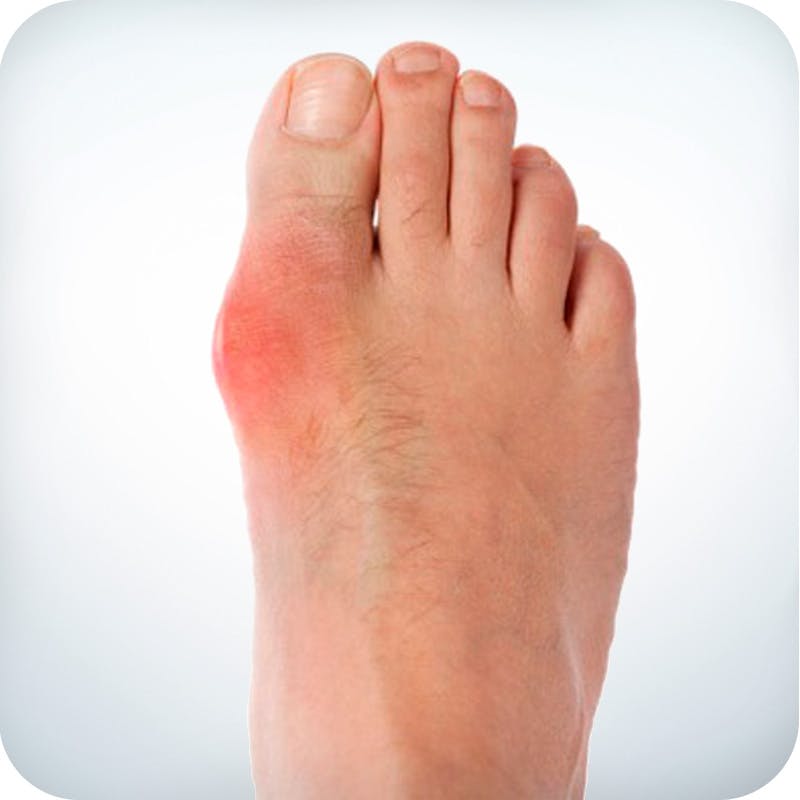



- A low carb diet is not necessarily high in meat – just moderate.However, low carb diets that are high in meat are markedly different from a meat-heavy, standard American diet.
- All low carb diets should have negligible amounts of sugar and refined carbohydrate. This is critical because there is a growing body of evidence suggesting a strong association between sugar intake and the risk of gout. If this relationship eventually proves to be a causal one, then low carb diets would be considered a therapeutic tool for reducing the risk of gout.
- There is clinical evidence that the risk of gout likely goes down on low carb, at least over the long term.
However, there may possibly be a slight increase in the risk of gout during the first few weeks on a strict low carb diet.
For more on what really causes gout and how to avoid it, check out our full guide:
Start your FREE 30-day trial!
Get instant access to healthy low carb and keto meal plans, fast and easy recipes, weight loss advice from medical experts, and so much more. A healthier life starts now with your free trial!
Start FREE trial!

